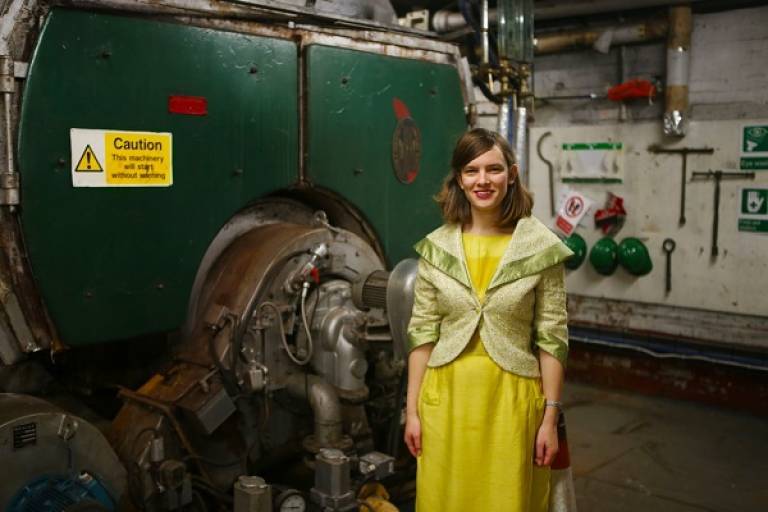Meet our Faculty Sustainability Partner: Joanna Marshall-Cook

Joanna is leading UCL’s transition to be a zero carbon institution by 2030, facilitating change in the way UCL uses energy, travels, buys products and eats. She also manages UCL’s sustainability engagement programme, bringing together students and staff from across the institution to embed sustainability into teaching programmes, research and operations. Prior to UCL she worked for BioRegional an entrepreneurial sustainability charity to deliver sustainability strategies for the public and private sector.
Can you tell us about your role as Faculty Sustainability Partner, what does it involve?
UCL has an ambitious sustainability strategy: to create a zero carbon university, provide a sustainability education for all our students and develop innovative approaches to the climate and ecological crises. Our faculties are integral to realising this vision; and so we have developed the business partner role to support faculties to identify what opportunities to make a sustainability impact and provide guidance for faculties to implement these changes.
What inspired you to get involved in sustainability and why did you want to be a part of Sustainable UCL?
For me sustainability brings together my two great passions – nature and social justice; probably inspired by a childhood on a farm with a lot of feminists! I feel at home at UCL; it’s a fantastic place to experiment with new sustainability solutions; inspired by our amazing sustainability researchers and in partnership with an open minded community of students and staff ready to take action.
Tell us about a project you are working on which is top of your to do list?
We’ve spent the last year developing an online version of UCL’s LEAF programme for sustainable laboratories which we hope will make it even easier for more labs to take part. We’re now working with external partners and other universities to increase the use of LEAF across more universities and labs.
Can you tell narrow down what the main focus is for Sustainable UCL is at the moment?
The UK is hosting the international climate summit (COP 26) in November – it’s a huge opportunity for progress on the climate. So this year we are focussing on our positive climate campaign – looking at options for generating more of our own renewable energy, including using waste heat from the London Underground to heat our buildings. We’re also working to connect more of our climate academics to develop a greater national presence for UCL’s climate research. You can see what’s happening on our newly launched UCL Climate Hub.
What advice do you have for staff and students about getting involved in sustainability and the benefits of doing so?
What it means to be sustainable at UCL is unique for everyone; for example the sustainability impacts from lab work to teaching are totally different. Why not start by asking yourself 'What are the sustainability opportunities in my role? What could I do differently?' Read our top tips for getting started
 Close
Close

